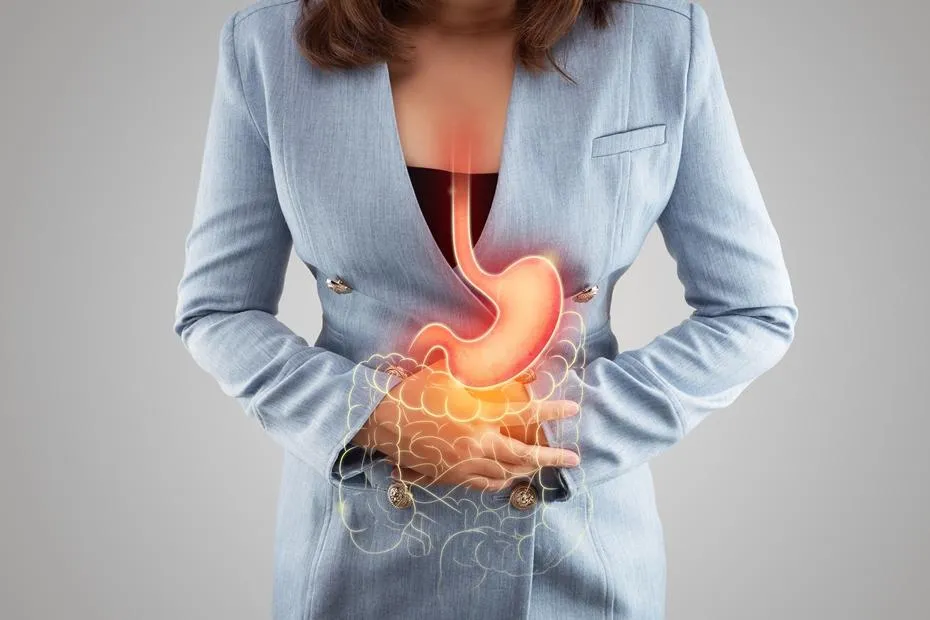
Acid reflux, Heartburn, and GERD
Heartburn. Acid Reflux. GERD. You’ll often find these terms used to refer to any condition where there’s acid present above the stomach. It’s no wonder patients often ask, “Are acid reflux, heartburn, and GERD the same?” Despite being used interchangeably, there is a difference:
Acid reflux involves acid moving up and out of the stomach into the oesophagus, throat, and mouth.
Heartburn is the painful sensation that occurs from acid reflux. The pain is often central to the chest – just behind the breastbone.
Gastroesophageal reflux disease (GERD) is a medical condition where acid reflux occurs repeatedly. Usually, GERD is defined as two or more episodes of acid reflux in a week that affect your quality of life or lead to complications.
Understanding acid reflux, heartburn, and GERD is crucial to treating and resolving your symptoms. That covers the causes of heartburn, the symptoms of GERD, and many other aspects. Let’s get started.
Understanding Acid Reflux
Your stomach uses acid to kill harmful pathogens and begin the process of digestion. Usually, the acid is kept in the stomach by the lower oesophageal sphincter (LOS). The LOS is ring of muscle that works like a valve, allowing fluids and food to enter the stomach but not leave.
If the LOS is weak or doesn’t close properly, acid from the stomach can move back into the oesophagus. Often, this occurs if the stomach pressure increases or the LOS is extremely relaxed. As the acid moves backwards, it irritates and inflames the structures along the way, including the oesophagus.
What Causes Acid Reflux?
The primary cause of acid reflux is a weak LOS. However, it’s not the only factor. Other potential causes that can increase the risk or severity of acid reflux include:
Obesity or being overweight
Eating large or fatty meals
Lying down soon after eating
Pregnancy
Smoking
Hiatus hernia
Certain medications (e.g. NSAIDs, calcium channel blockers)
Alcohol, caffeine, or spicy foods
Stress and anxiety
These causes contribute to acid reflux in several ways. These factors can increase stomach pressure (e.g., obesity or eating a large meal), relax the LOS (e.g., smoking or alcohol), or increase stomach acid production (e.g., stress or fatty meals).
Understanding Heartburn
Heartburn is a bit of a strange term. You might think it indicates a heart problem, but it doesn’t. In fact, it’s got nothing to do with your heart, nor is it a condition itself.
Instead, heartburn is the characteristic symptom of acid reflux. It’s often described as a burning sensation just behind the breastbone. It occurs when acid irritates the oesophagus, causing inflammation. The pain can be sharp or like a tightening sensation. The higher the acid rises, the worse the pain becomes.
Heartburn is usually worse after eating, especially fatty or spicy foods. Lying down or bending over can exacerbate the symptoms as acid readily enters the oesophagus.
Understanding GERD
GERD is a chronic medical condition where acid reflux occurs repeatedly (more than twice per week). People with GERD experience heartburn; however, the continual acid exposure also leads to several other symptoms.
It's worth noting that GERD in children can present with different symptoms than in adults, sometimes including frequent vomiting, feeding difficulties, or respiratory issues.
The symptoms of GERD include:
Hoarse voice (acid irritates the vocal cords)
Persistent dry cough
Regurgitation (stomach contents enter the mouth)
Damage to tooth enamel (from excess acid in the mouth)
Bad breath
Trouble swallowing (dysphagia)
The underlying causes of GERD are the same as those of acid reflux—the difference lies in how frequent the symptoms are. If left untreated, GERD can cause lasting damage to the oesophagus. Ongoing inflammation (oesophagitis) may lead to scarring and the formation of strictures. Over time, changes in the oesophageal lining can occur, which may increase the risk of oesophageal cancer.
That’s why it is so crucial to diagnose and treat GERD. The earlier the condition is resolved, the less damage will occur long term.
Treating GERD
The primary treatment for GERD is lifestyle modifications. Triggers like large, fatty meals, smoking, alcohol, eating before bed, obesity, and more must be eliminated or minimised to prevent repeated episodes of acid reflux.
Alongside lifestyle changes, your doctor may prescribe medications. Antacids neutralise acid during an acid reflux attack, whereas proton pump inhibitors (PPIs) or H2 blockers reduce stomach acid production, providing long-term relief.
Ready to learn more about GERD symptoms? The Functional Gut Clinic has put together a comprehensive guide covering everything you need to know about GERD and acid reflux. We’re a leading provider of acid reflux testing, helping patients understand and treat their acid reflux symptoms.

